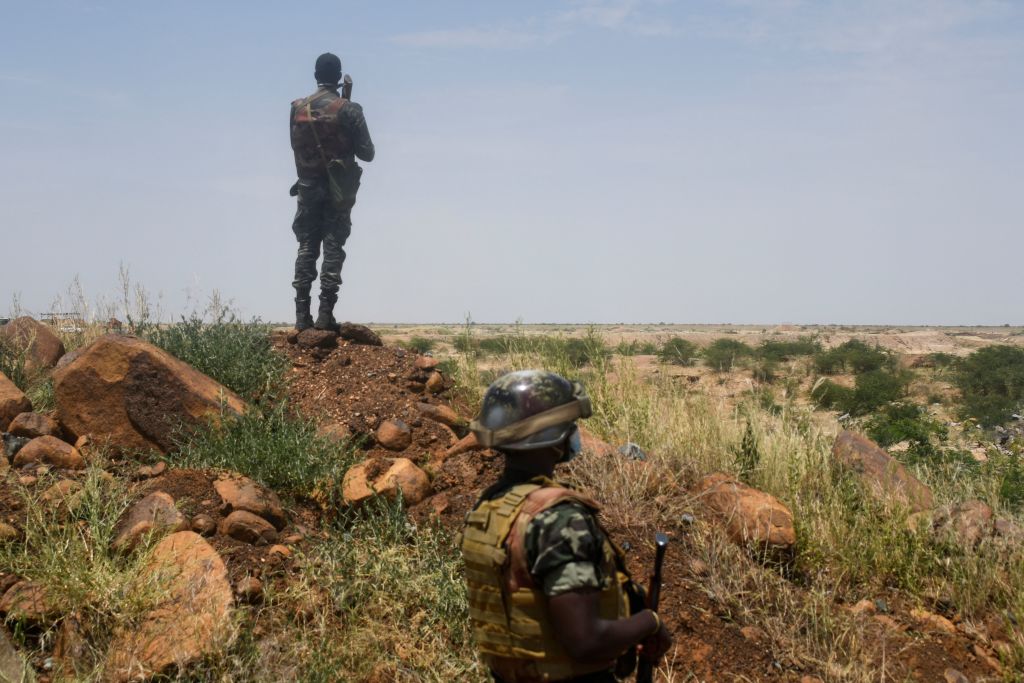ADF STAFF
Hundreds of people, mostly unarmed civilians, were slaughtered in Moura, a village in the Mopti region of Mali in March 2022. According to a U.N. report released in May, Russia’s Wagner Group of mercenaries oversaw the massacre.
“These are extremely disturbing findings,” Volker Türk, the U.N. high commissioner for human rights, told The Guardian. “Summary executions, rape and torture during armed conflict amount to war crimes and could, depending on the circumstances, amount to crimes against humanity.”
The Wagner Group’s actions in Mali over the past year, coupled with France’s withdrawal of all troops from the country, is one of the three main developments that drove violence throughout the Sahel region throughout 2022 and into 2023, according to a June report by the Hoover Institution, a public policy think tank.
Besides the Moura massacre, the Wagner Group has targeted civilians during attacks in the Koulikoro, Segou and Timbuktu regions, where the notorious Jama’at Nusrat al-Islam wal-Muslimin (JNIM), terrorist group operates. Despite promises of security, JNIM has flourished in Mali since the Wagner Group’s arrival.
According to the Hoover Institution report, the other two developments driving violence in the Sahel are: the failure to contain the Islamic State Sahel Province (IS Sahel) in Burkina Faso, Mali and Niger, and new tactics used by JNIM and al-Qaida in the Islamic Maghreb (AQIM).
Last year, extremist violence killed more than 19,100 people in Africa in 2022, a 48% increase over the previous year, according to a new report by the Africa Center for Strategic Studies. The increase in terrorist-linked fatalities was marked by a 68% increase involving civilians.
Most of the violence was in the Sahel region — mainly in Burkina Faso, Mali and Niger — and Somalia. Those areas accounted for 77% of all reported violent incidents on the continent in 2022.
IS Sahel Activities
IS Sahel’s activity peaked in 2019, prompting France to create the “Takuba” force of French and European special operation forces. Takuba had some success, notably killing the group’s founder, Adnan Abou Walid al-Sahrawi, in 2021.
However, when the French military began disengaging in 2022, the group expanded its scope in the Ménaka area in northeastern Mali, where it implemented sharia in public places and provided basic assistance to locals.
According to the Hoover Institution report, the group is modeling practices used by the Islamic State in Iraq and Syria, such as repurposing religious and propaganda materials for use in the Sahel.
“One of the latest examples is the distribution in several locations in northeastern Mali of the Arabic pamphlet ‘This is Our Doctrine and This is Our Method,’ which was originally produced by the Islamic State’s printing press Maktabat al-Himma some nine years ago to refute negative allegations and to win the support of local factions and tribes in Iraq and Syria,” Wassim Nasr wrote for the Hoover Institution.
IS Sahel seized the northeast Malian town of Tidermene on April 10 without a fight. They gathered residents, distributed leaflets and told them to prepare to pay zakat, an Islamic tax. Throughout 2022 and 2023, IS Sahel has waged a major offensive throughout Mali’s tri-border region with Burkina Faso and Niger.
Expanding Recruitment
JNIM was formed as an affiliate of AQIM around 2017 and the groups’ activities have evolved over time to survive military pressure. In 2021, JNIM framed its war in the Sahel region as one against a French presence.
As Nasr wrote, the groups are sensitive to local perceptions and have recently begun emphasizing the regional nature of their struggle. Recently, JNIM has mostly targeted military sites and avoided “soft targets.” Whenever acts of violence against civilians are perpetrated by the groups, they typically blame the incidents on local militaries.
A recent report by the Armed Conflict Location & Event Data Project disputes those claims, saying that in 2022, Burkina Faso alone experienced a 400% increase in violent incidents that mostly involved JNIM.
AQIM now is recruiting members beyond the Arab and Tuareg communities and appealing to Fulani communities.
That gives the group “an unprecedented reach southward and all the way to neighboring Senegal and Ivory Coast,” Nasr wrote. “It is now trying to expand even further by recruiting in other communities.”

